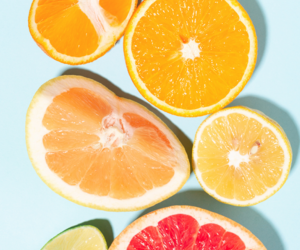By Ned Hancock, Chairman of the Florida Citrus Commission
As we head into yet another week of social distancing and “Safer At Home” orders, I am encouraged by the dedication and hard work of those in this industry. As farmers, we are deemed “essential” in the eyes of not only the government but also by those who seek to provide nutritious and great tasting food for their loved ones. I recognize there are risks and rewards to this type of essential work. That is why we must continue to work together to support consumers and each other throughout this crisis in a way that is responsible and respectful to all.
We continue to hear positive news on the retail front. During this time of great uncertainty, Americans continue to seek out products they know and trust. Additionally, they are turning to items they know may help support a healthy immune system. For many, that means 100% orange juice.
The Economic and Market Research Department at the Florida Department of Citrus recently added a new question to its monthly survey of American consumers to measure how COVID-19 concerns have altered their behavior when it comes to purchasing 100% orange juice. Nearly 40 percent of respondents indicated they have purchased more OJ recently with over one-fifth of them indicating they purchased more OJ because it’s good for a healthy immune system and has vitamin C. A small percentage indicated they have bought less OJ, and specifically noted it was due to decreased availability. The increase in demand can be attributed to consumers’ historical awareness of the nutritional value of 100% orange juice.
This has led some retailers to place a limit on the number of containers each consumer may purchase. Similar restrictions have been placed on other popular items to help retailers ensure more customers have access. For some items, this may be due to scarcity. For OJ, as reported by Commissioner Bill Poulton at Mutual’s board meeting this week, it comes down to logistics. While supply of 100% orange juice is not an issue, moving the juice from processor to retailer takes time. Brands are replenishing store shelves as quickly as possible to meet the unexpected increase in demand.
In recognition of these short-term constraints, changes are being made on the marketing front.
Since its launch in January, the FDOC’s e-commerce campaign has led to $2.2 million in attributed sales of 100% orange juice across Instacart, Walmart and Amazon at an average Return On Ad Spend (ROAS) of $4.22. The campaign has reached 192 million consumers, which exceeds the original campaign goal.
However, with demand high due to increased awareness, consumers are turning to orange juice of their own accord. The FDOC has adjusted its spend to extend the campaign into May and June. This allows the department to build off current momentum and ensure 100% orange juice remains relevant as consumers slowly return to their normal shopping patterns.
On the research front, the FDOC is also engaged in gaining key learnings during this time that will aid in development of future programs. The Scientific Research Department continues to build upon decades of research to further support the role 100% OJ and its nutrients plays in a healthy diet and immune system.
The FDOC recently contracted with the Think Healthy Group and their researchers from George Mason University and Tufts University School of Medicine to conduct a formal systematic review of the current science related to the effects of 100% orange juice on oxidative stress and inflammation. Besides publishing the results of the systematic review in a peer-reviewed journal to reach researchers, clinicians, and policymakers, the group will also identify gaps where future opportunities exist to strengthen and advance the research in this area. This work will be incorporated into marketing messaging, as appropriate.
The FDOC is also introducing a series of webinars as part of its efforts to increase communication with the citrus industry.
On April 16 at 11 a.m., Jackie Hopkins with FDOC partner agency Edible will provide a live presentation on FDOC’s new marketing campaign using e-commerce as a way to drive OJ sales. The webinar will also include a demonstration on how e-commerce channels are used to engage with consumers. This is a similar presentation to the one provided at the Highlands County Growers annual meeting in March.
On April 30 at 11 a.m., Dr. Marisa Zansler, director of FDOC’s Economic and Market Research Department, will present the latest Nielsen retail sales data for the 4-week period ending April 11.
Details on how to access these webinars is available at FDOCGrower.com. The FDOC will send out an invite to those on its industry contact list. If you would like to be added, contact Samantha Lane at slane@citrus.myflorida.com.
I hope you are able to join the webinars and learn more about the work FDOC is doing on your behalf. We are in this together. Stay safe.
